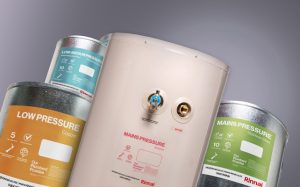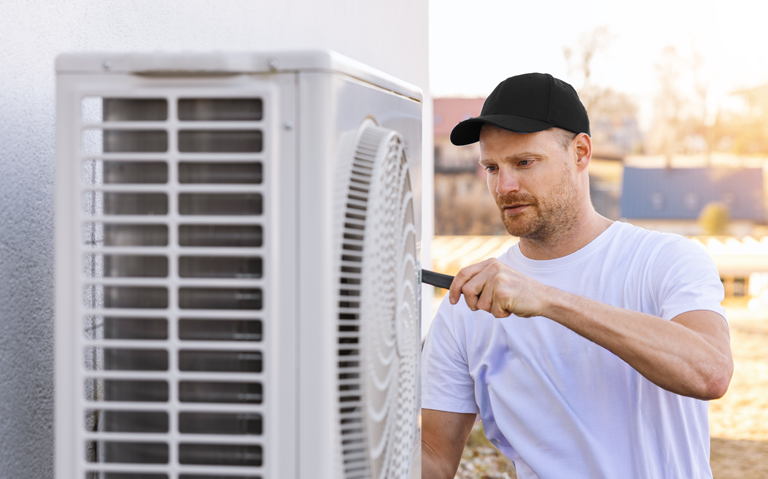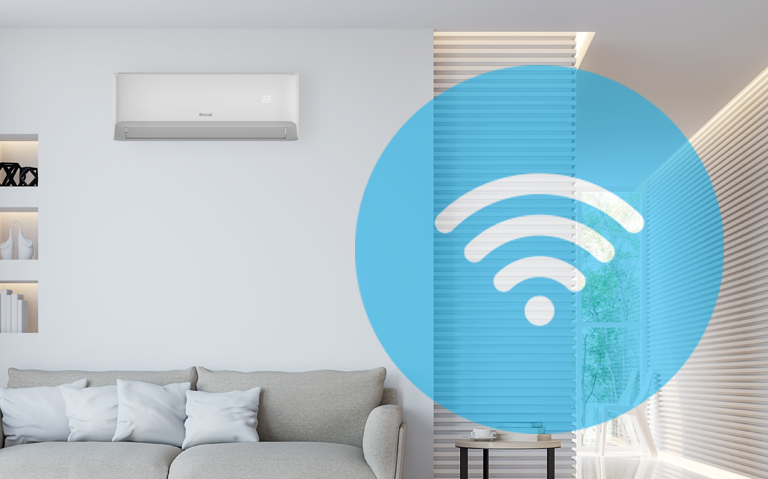In the midst of winter, New Zealand experiences a chilling cold. Our days begin with frosty mornings, followed by chilly afternoons and cold evenings spent huddled at home. To combat the cold, many of us rely on the excellent efficiency of heat pumps to keep ourselves and our families warm. Maintaining a comfortable temperature indoors not only strengthens our immune system and helps ward off the common cold but also transforms our house into a cozy and happier haven.
However, as luck would have it, there are times when heat pumps fail us, precisely when we need them the most. You might find your heat pump not performing at its best, perhaps blowing cold air when it should be heating, or, even worse, being completely unresponsive. In such frustrating moments, we find ourselves asking, “Why isn’t my heat pump working?!”
Let’s now explore the most common reasons behind these heating issues and discover how we can resolve them.
How do I tell if my heat pump is working?
Here are a few tell-tale signs that your heat pump isn’t working:
- Heat Pump is completely unresponsive
- Blowing cold air for an extended amount of time
- A significant and maintained drop in performance
- Electrical smells when in operation
- Unusual noises
- Sudden and unexpected spike in electricity bills

What are common problems with heat pumps?
The most-common problems with heat pumps are insufficient heating levels, low airflow, odd smells, strange sounds, and unusual spikes in energy bills. That’s assuming it turns on in the first place!
Your heat pump system plays a crucial role in keeping your home comfortable and energy-efficient and so we’ve pulled together some common heat pump challenges and how to manage them.

- Insufficient Heating Levels
If you notice that your heat pump isn’t generating enough heat for your home, there are several factors to consider. The most frequent and fundamental problem often lies with dirty air filters. These filters can hinder proper airflow, causing your system to work harder, consume more energy, and potentially lead to breakdowns. To prevent this issue, it’s essential to regularly clean your air filters or schedule a service with an accredited heat pump service technician.
However, if your system seems to be functioning well but still fails to produce sufficient heat, it might be a case of your heat pump not being adequately sized for your home. In such situations, the heat pump’s capacity might not match your home’s heating demands, leading to inadequate performance. In such cases, it would be beneficial to consult with a heat pump professional to assess whether your heat pump is the right fit for your space.

- Low Airflow
The air coming out of your unit may still be warm, but if you can barely feel the air flowing, there might be something wrong – such as a malfunctioning compressor. Heat Pumps with diminished airflow will have to work harder to heat your home and in turn, result in higher energy bills.
For ducted air conditioning systems, you may notice that some rooms are receiving good airflow and others aren’t. The problem might stem from obstructions in the ductwork or indicate an issue with the compressor. Whatever the case, weak airflow should be addressed fairly swiftly.

- Odd smells from your system or drips from the indoor unit
Heat pumps have a condensate drain whose job is to remove excess moisture from your system. If this becomes clogged it can cause water damage or even mould growth.
A small amount of condensation or water dripping from the outdoor unit of your Heat Pump is not unusual, but for the most part, the unit should be dry whether it’s in use or not. Any moisture from the indoor unit or a sudden increase in condensation or a leak means it may be time to call in the service technicians.
Moisture or leakages can be a result of a refrigerant leak or issues with the condensation not being able to drain correctly from your unit. Either way this is something that will need to be addressed to mitigate any further, and larger, issues down the line.
If you start to notice strange or foul smells when your Heat Pump is turned on, it may well be a sign of burnt wire insulation or even something more sinister.
If you notice a musty smell, then it could mean that there’s mould growing inside your unit – something that’s a health risk to you and your family.
In such cases, it’s crucial to address this quickly and have a technician to diagnose the underlying problem and perform any necessary repairs.

- Mysterious sounds
A functioning air conditioning system should be as quiet as a human whisper (less than 30 decibels). There may be the occasional sound as it cycles but any noises different from the norm are a sign that something’s not quite right.
Minor noise changes could indicate a malfunctioning fan or a loose part. However, persistent increased noise levels and any rattling, buzzing, screeching, grinding or ticking usually mean there is a more serious problem which may lead to a complete system fail. Call the professionals in before the problem escalates to a full-replacement.

- Increased and Unexpected Energy Bills
A spike in your energy consumption is more than just a shock – it’s one tell-tale sign that your Heat Pump isn’t working at its peak efficiency. Even if it seems to be functioning ‘normally’, a surge in energy costs may mean it’s using extra power.
If the system is overworking, the diminished heating capacity will raise energy costs as your unit struggles to maintain the desired temperature. The culprit could be blocked filters, a compromised compressor or a refrigerant leak – all of these elements will be looked at and addressed in a regular service by a qualified Heat Pump technician.
At the end of the day, the best thing you can do to extend the life and efficiency of your Heat Pump is to have it professionally serviced once a year. A professional technician will do a comprehensive investigation of your whole system and carry out a routine maintenance service and be able to let you know if anything might need further repair.
It’s about more than just staying comfortable during the winter months – a Heat Pump working to its full capacity means reduced energy costs, reduced noise levels, improved air quality, and better overall performance.
How much does it cost to repair a heat pump?
It can cost anywhere from $150 to $1,000 to repair a heat pump depending on what the fault is. We recommend that you contact a professional service technician to do a full inspection of the system to ascertain what the issue is and to determine if the fault is covered under warranty.

How Can I Get My Heat Pump to Last Longer?
The key to heat pump longevity is to have them serviced before you actually need to. Waiting for an issue to arise is both costly and inconvenient. A ‘pre-winter’ service of your Heat Pump each year will address any issues before those first arctic blasts of a true NZ winter hit.
A lack of proper maintenance and regular servicing could not only significantly affect the efficiency and performance of your system, but it can also reduce your heat pump’s lifespan. There are some easy steps you can take to care for your heat pump such as regularly cleaning the filters, cleaning the indoor grilles and keeping the outdoor unit free from debris. For some top tips to extend the life of your heat pump check out our Ultimate Guide to Heat Pump Cleaning.
These tips will help keep your unit working effectively and efficiently. But they don’t replace the need to have your system professionally serviced by an accredited Heat Pump technician.
A professional service will ensure your system will run smoothly and efficiently, delivering comfort to your home while extending the life of your investment.















